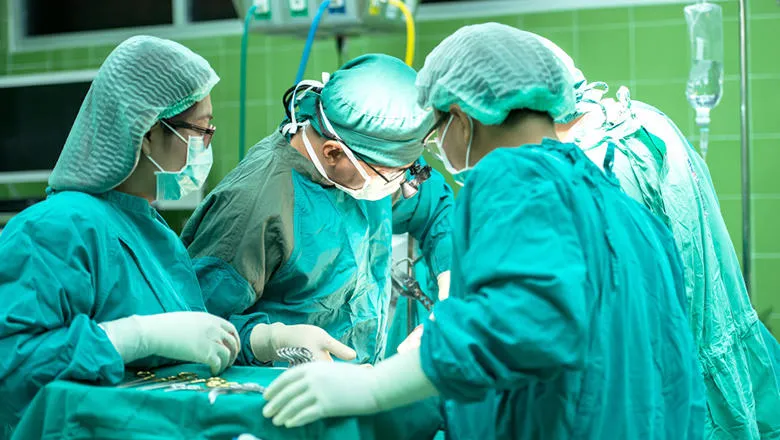Given the increasing use of C-section, particularly cases that are not medically required, there is a crucial need to understand the health effects on women and children. Greater understanding of this is important to help inform decision making by families, physicians and policy makers.
Professor Jane Sandall CBE
25 October 2018
Do we understand the risks of caesarean section?
Will Richard, Communications & Engagement Officer
Professor Jane Sandall CBE analyses the potential risks of C-section.

A series of papers published in the Lancet shows that globally the number of babies born through caesarean section (C-section) almost doubled between 2000 and 2015: from 12% to 21% of all births or nearly 30 million worldwide.
C-section, an operation to deliver a newborn through a cut made in the mother’s abdomen and womb, can undoubtedly save lives when complications occur. The World Health Organisation (WHO), however, estimates that only 10-15% of births medically require one. The authors of this series estimate that rates of C-section are higher than this in nearly two thirds of countries and in at least 15 countries C-section use exceeds 40%.
In the context of widespread overuse, a team from King’s School of Life Course Sciences, led by Professor Jane Sandall CBE, analysed the potential risks of C-section in the second of three papers in the series. Professor Sandall said of the study:
By reviewing 15 years of previous research, Professor Sandall and the team found that maternal death and disability is higher after C-section than vaginal birth and leads to a more complicated recovery for the mother. The unavoidable scarring of the womb is associated with bleeding, abnormal development of the placenta, ectopic pregnancy, stillbirth and preterm birth in subsequent pregnancies.
There is also emerging evidence that babies born via C-section are exposed to different hormones, environments, bacteria and medicines during birth which can subtly alter their health in later life. While the long-term risks of this are not yet well understood, the short-term effects include changes in immune development which can increase the risk of allergies and asthma and alter the bacteria in the gut.
Speaking of the team’s conclusions Professor Sandall said:
C-section is a type of major surgery, which carries risks that require careful consideration. The growing use of C-sections for non-medical purposes could be introducing avoidable complications, and we advocate that C-section should only be used when it is medically required.
Professor Jane Sandall CBE
